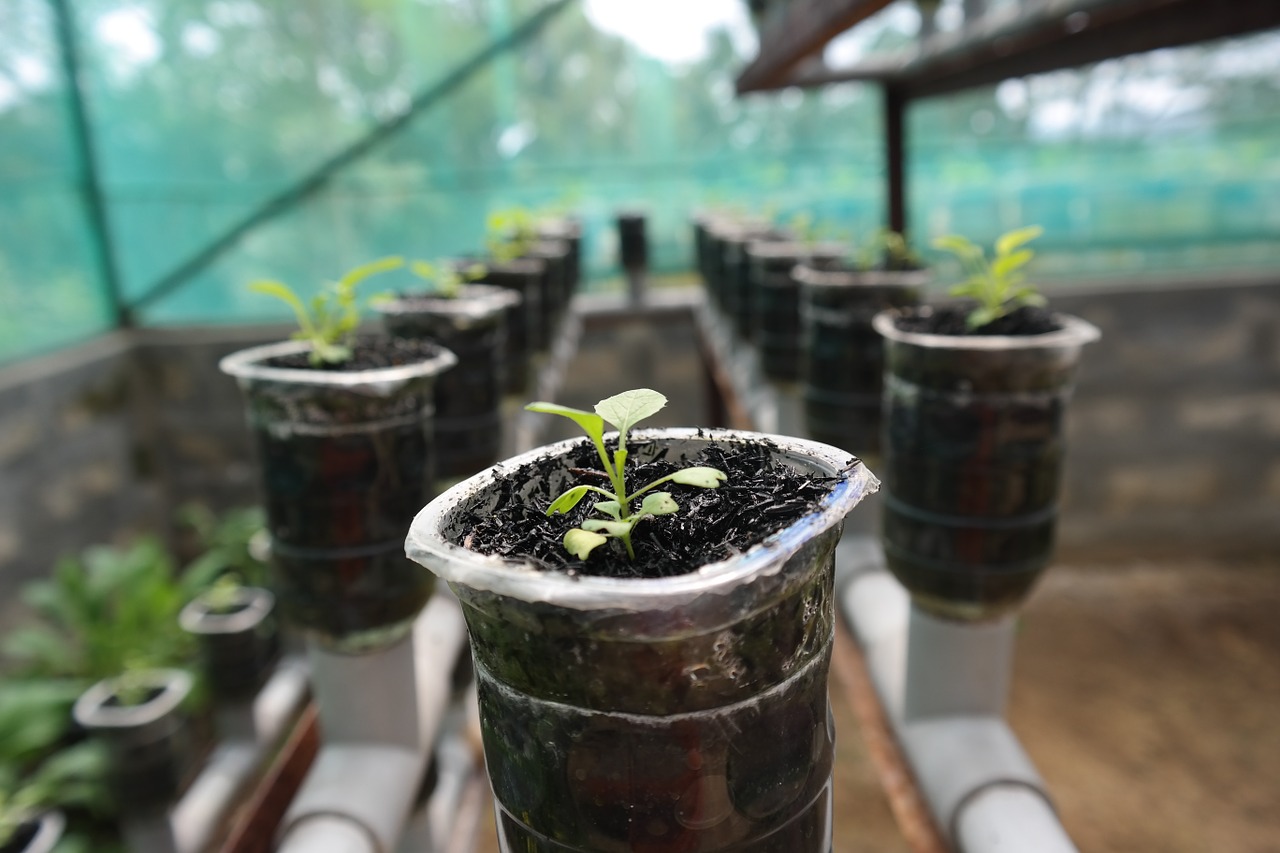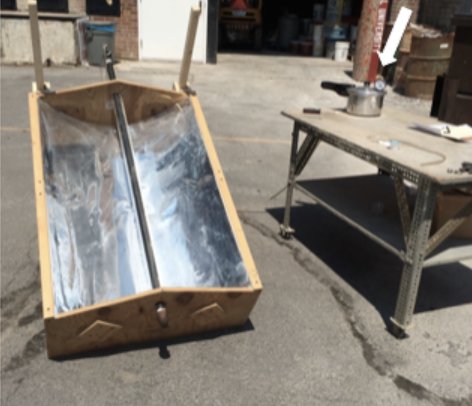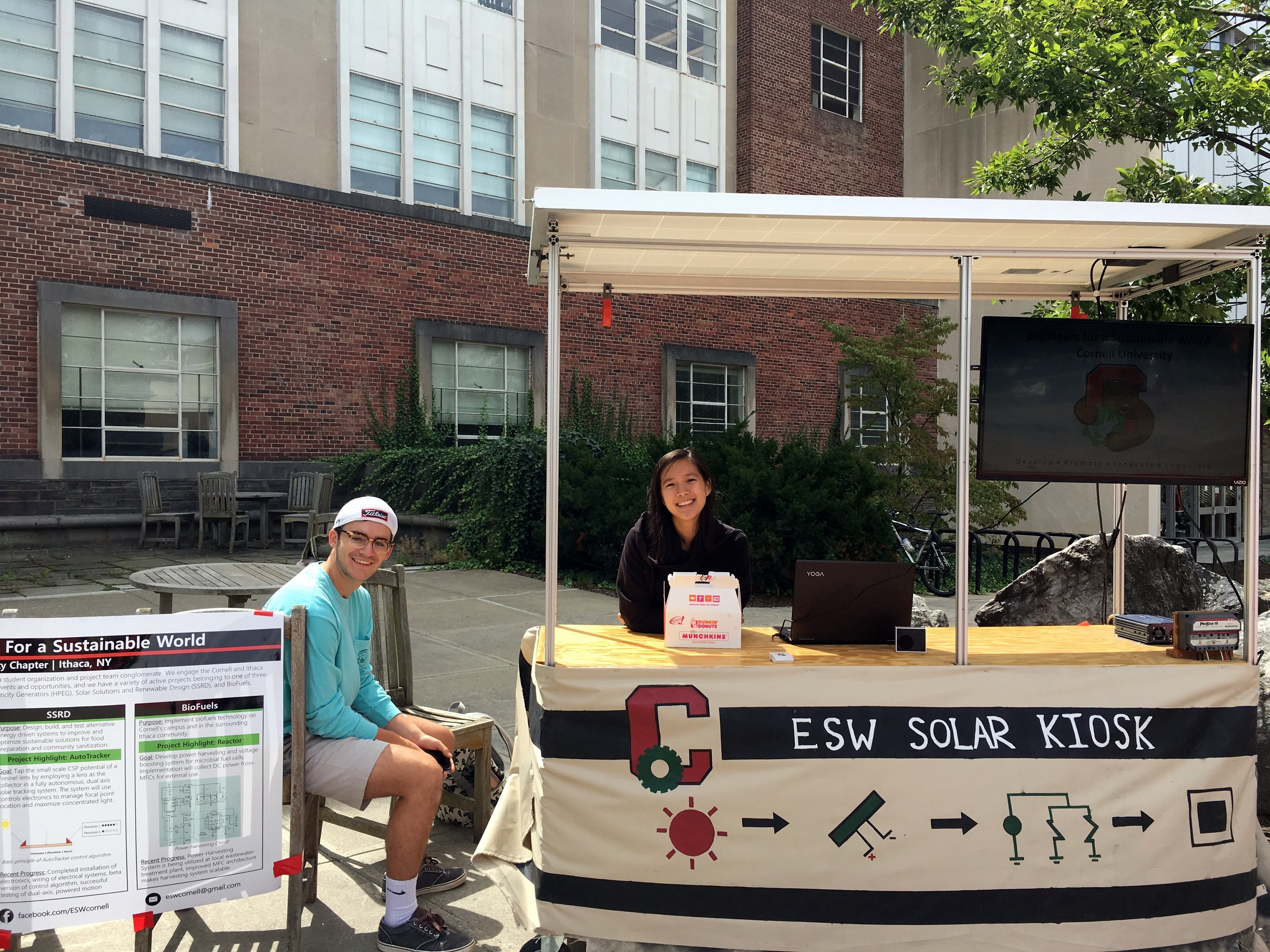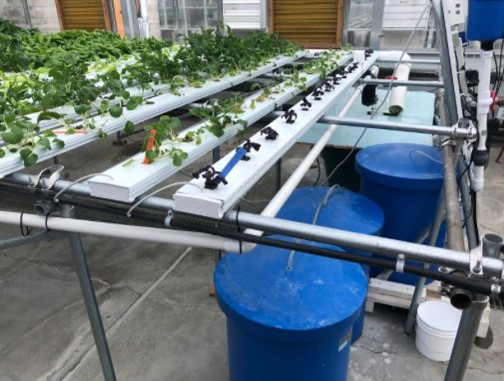Projects
Current
-
Solar Oven

The solar oven sub-team has been working to reconstruct and improve upon a solar oven made by ESW in the early 2010's in the Bovay Lab, as the current solar oven was outdated and inefficient. Improving it would allow for more effective solar testing and sealing for ESW teams. The team has also worked to improve ESW's solar simulator- a setup of lights that can mimic incoming solar energy. Additionally, the team has been collaborating with faculty in CBE to research how broken solar panels can be refurbished and recycled.
-
Hydroponics

The hydroponics project will be a multi-semester design and build project in order to create an efficient and robust outdoor hydroponics system to grow plants without soil and utilizing a solar component to offset energy use. The hydroponics team has also collaborated with faculty in CEE to test out new, innovative growing techniques in hydroponics. The team hopes to build an affordable and effective hydroponics setup, and communicate the benefits of hydroponics to Cornell and the Ithaca community.
Completed
-
Portable Solar-
Powered Desalinator
We are working on a solar-powered device that will utilize a low wattage coil that we may create ourselves to heat the saltwater or contaminated water to near boiling temperatures. Over a few days, fresh water will evaporate and condensate onto the high surface area cone and drip into a freshwater reservoir around the edge which will feed into a clean water container for consumption.
-
Solar-Powered Backpack

The Solar-Powered Backpack team is trying to confront the problem of power supply in the ever-growing number of natural disasters that take place each year in a sustainable way. Through integrating battery storage, solar power, and circuitry, the team is creating a durable product that can be used to power cellphones, flashlights, radios, and more during a disaster. We are also looking at how we can integrate additional features like GPS tracking, flotation devices, and water filtration into the pack.
-
Solar Kiosk

Paper production has the third highest energy usage and is the fourth largest greenhouse gas emitter among all manufacturing industries in the U.S. In North America alone, upwards of 500 pounds of paper per capita are consumed, of which approximately 26 million tons end up in landfills per year.
Cornell University is contributing to this unsustainable practice of paper waste and production. The vast majority of clubs advertise for their upcoming events by passing out quartercards, which are slips of paper with event information. Some of these quartercards are recycled, but the majority is immediately discarded to landfill waste. Our goal is to design and build a solar powered kiosk with a TV monitor and electrical outlets that clubs can use as an alternative way of advertising. The solar panels will prevent the usage of unsustainable energy sources to run the kiosk. The kiosk will also provide an environmentally friendly way for students to charge their portable electronics.
-
Food Processing

Food Processing sub-team will partner with a local food processing, packaging, or distributing company to work on making their systems more sustainable and energy efficient.
-
Solar Generator

The purpose of this project is to connect a mylar solar panel made in the previous semesters to a generator for battery storage. We will work on making the panel and generator water resistant so that the device can be left outside even in unfavorable weather conditions.
Our objective is to design and build a working solar powered generator that will store energy for various practical uses. We plan to split the tasks between two subteams: Solar and Generator. The Solar team will refer back to past semesters’ designs of the solar panels and optimize the backing and sealing components to maximize the current and voltage output of the cells. The Generator team will construct a device that will receive the current from the solar cells allowing the battery to store power.
-
Blueprint to Building

B2B is a new addition to ESW. Our focus is on sustainable living. Some of our accomplishments so far include carrying out an Energy Audit that investigated possible energy sources for the future and creating an energy education curriculum with posters addressing ways residents can increase their sustainability. We also partner with Seconds Winds, a not-for-profit organization.